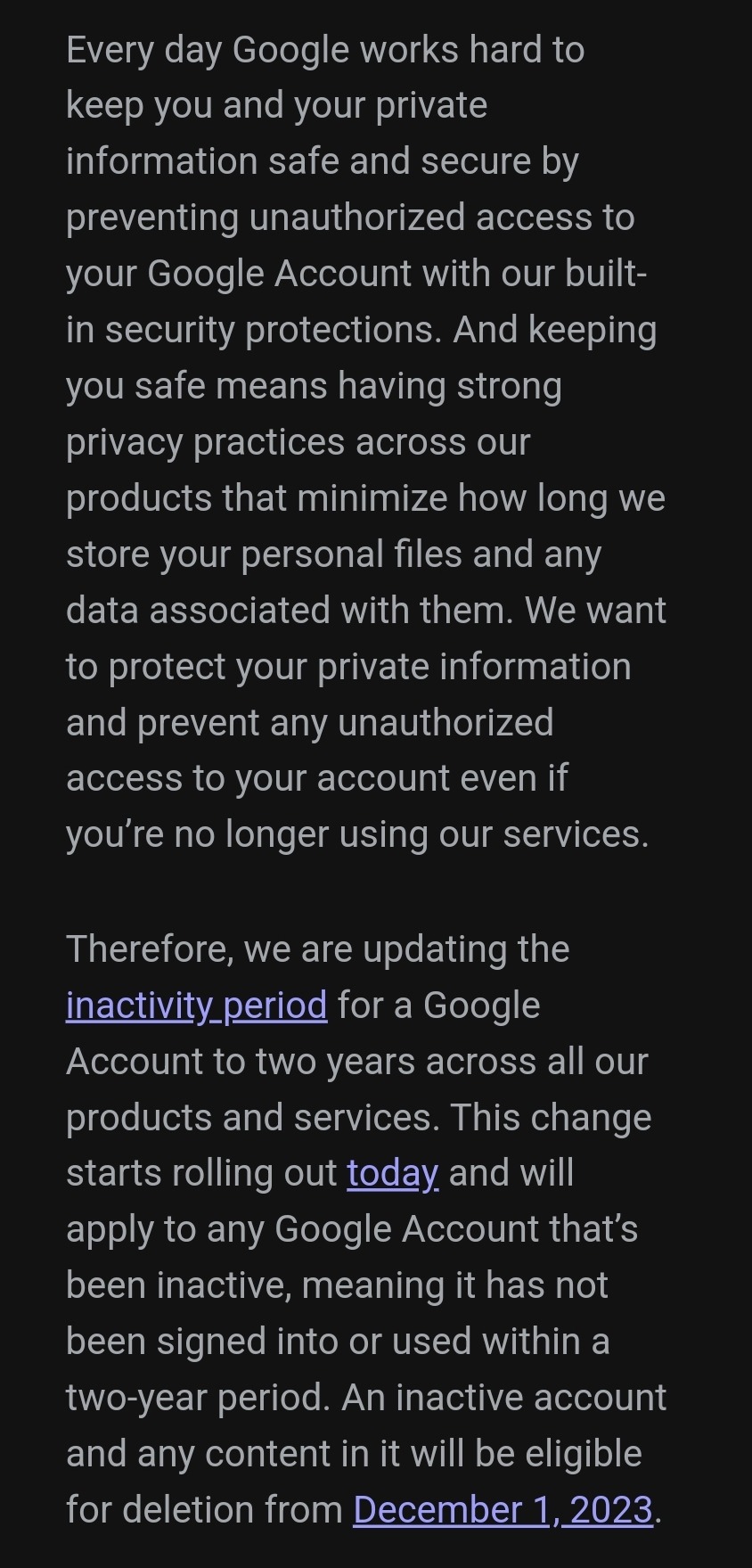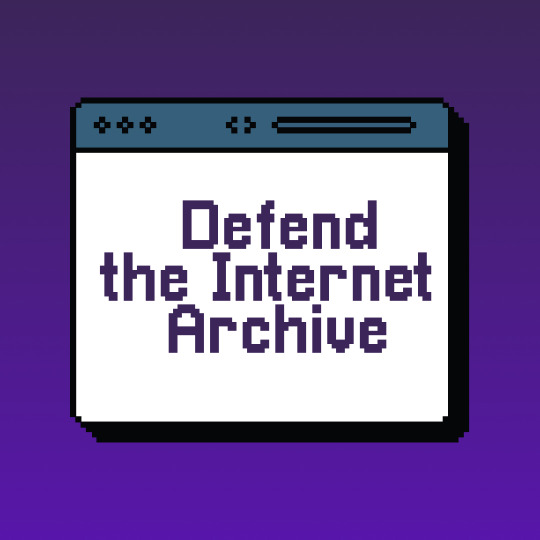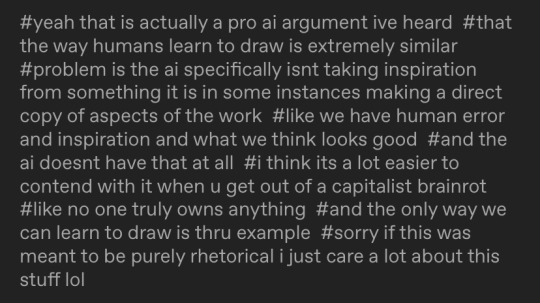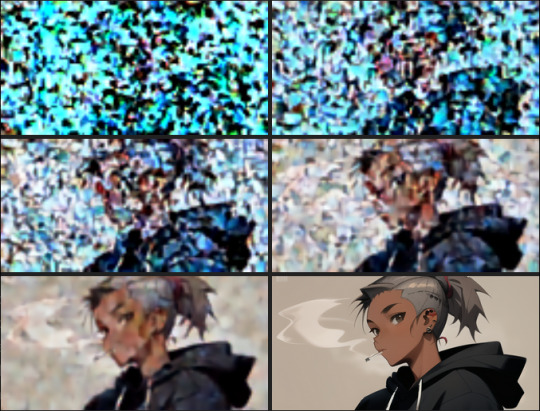#open internet
Text
By Jessica Corbett
Common Dreams
Sept. 26, 2023
Open internet advocates across the United States celebrated on Tuesday as Federal Communications Commission Chair Jessica Rosenworcel announced her highly anticipated proposal to reestablish FCC oversight of broadband and restore net neutrality rules.
"We thank the FCC for moving swiftly to begin the process of reinstating net neutrality regulations," said ACLU senior policy counsel Jenna Leventoff. "The internet is our nation's primary marketplace of ideas—and it's critical that access to that marketplace is not controlled by the profit-seeking whims of powerful telecommunications giants."
Rosenworcel—appointed to lead the commission by President Joe Biden—discussed the history of net neutrality and her new plan to treat broadband as a public utility in a speech at the National Press Club in Washington, D.C., which came on the heels of the U.S. Senate's recent confirmation of Anna Gomez to a long-vacant FCC seat.
Back in 2005, "the agency made clear that when it came to net neutrality, consumers should expect that their broadband providers would not block, throttle, or engage in paid prioritization of lawful internet traffic," she recalled. "In other words, your broadband provider had no business cutting off access to websites, slowing down internet services, and censoring online speech."
"Giant corporations and their lobbyists... will try every trick to block or delay the agency from restoring net neutrality."
After a decade of policymaking and litigation, net neutrality rules were finalized in 2015. However, a few years later—under former FCC Chair Ajit Pai, an appointee of ex-President Donald Trump—the commission caved to industry pressure and repealed them.
"The public backlash was overwhelming. People lit up our phone lines, clogged our email inboxes, and jammed our online comment system to express their disapproval," noted Rosenworcel, who was a commissioner at the time and opposed the repeal. "So today we begin a process to make this right."
The chair is proposing to reclassify broadband under Title II of the Communications Act, which "is the part of the law that gives the FCC clear authority to serve as a watchdog over the communications marketplace and look out for the public interest," she explained. "Title II took on special importance in the net neutrality debate because the courts have ruled that the FCC has clear authority to enforce open internet policies if broadband internet is classified as a Title II service."
"On issue after issue, reclassifying broadband as a Title II service would help the FCC serve the public interest more efficiently and effectively," she pointed out, detailing how it relates to public safety, national security, cybersecurity, network resilience and reliability, privacy, broadband deployment, and robotexts.
Rosenworcel intends to release the full text of the proposal on Thursday and hold a vote regarding whether to kick off rulemaking on October 19. While Brendan Carr, one of the two Republican commissioners, signaled his opposition to the Title II approach on Tuesday, Gomez's confirmation earlier this month gives Democrats a 3-2 majority at the FCC.
"Giant corporations and their lobbyists blocked President Biden from filling the final FCC seat for more than two years, and they will try every trick to block or delay the agency from restoring net neutrality now," Demand Progress communications director Maria Langholz warned Tuesday. "The commission must remain resolute and fully restore free and open internet protections to ensure broadband service providers like Comcast and Verizon treat all content equally."
"Americans' internet experience should not be at the whims of corporate executives whose primary concerns are the pockets of their stakeholders and the corporations' bottom line," she added, also applauding the chair.
Free Press co-CEO Jessica J. González similarly praised Rosenworcel and stressed that "without Title II, broadband users are left vulnerable to discrimination, content throttling, dwindling competition, extortionate and monopolistic prices, billing fraud, and other shady behavior."
"As this proceeding gets under way, we will hear all manner of lies from the lobbyists and lawyers representing big phone and cable companies," she predicted. "They'll say anything and everything to avoid being held accountable. But broadband providers and their spin doctors are deeply out of touch with people across the political spectrum, who are fed up with high prices and unreliable services. These people demand a referee on the field to call fouls and issue penalties when broadband companies are being unfair."
Like Rosenworcel, in her Tuesday speech, González also highlighted that "one thing we learned from the Covid-19 pandemic is that broadband is essential infrastructure—it enables us to access education, employment, healthcare, and more."
That "more" includes civic engagement, as leaders at Common Cause noted Tuesday. Ishan Mehta, who directs the group's Media and Democracy Program, said that "the internet has fundamentally changed how people are civically engaged and is critical to participating in society today. It is the primary communications platform, a virtual public square, and has been a powerful organizing tool, allowing social justice movements to gain momentum and widespread support."
After the Trump-era repeal, Mehta explained, "we saw broadband providers throttle popular video streaming services, degrade video quality, forcing customers to pay higher prices for improved quality, offer service plans that favor their own services over competitors, and make hollow, voluntary, and unenforceable promises not to disconnect their customers during the pandemic."
Given how broadband providers have behaved, Michael Copps, a Common Cause special adviser and former FCC commissioner, said that "to allow a handful of monopoly-aspiring gatekeepers to control access to the internet is a direct threat to our democracy."
Rosenworcel's speech came a day after U.S. Sens. Ed Markey (D-Mass.) and Ron Wyden (D-Ore.) led over two dozen of their colleagues in sending a letter calling for the restoration of net neutrality protections. The pair said in a statement Tuesday that "broadband is not a luxury. It is an essential utility and it is imperative that the FCC's authority reflects the necessary nature of the internet in Americans' lives today."
"We need net neutrality so that small businesses are not shoved into online slow lanes, so that powerful social media companies cannot stifle competition, and so that users can always freely speak their minds on social media and advocate for the issues that are most important to them," they said. "We applaud Chairwoman Rosenworcel for her leadership and look forward to working with the FCC to ensure a just broadband future for everyone."
153 notes
·
View notes
Text
We need all the help we can get to put a stop to this bill! Click the link, sign the petition, call your representatives, and donate as much as you possibly can! There’s no time to lose, KOSA must be stopped at all costs!!
#KOSA#stop kosa#go team internet#save the open internet#no kosa#team internet#internet freedom#open internet#protest for net neutrality#fight for net neutrality#protect net neutrality#save net neutrality#netneutrality#net neutrality#protect the internet#stop internet censorship#internet censorship#internet culture#kosa bill#anti kosa#end kosa#kosa must be stopped#fuck kosa#kosa act#stop the bill#stop that bill#stop bad internet bills#bad internet bills#internet bills
14 notes
·
View notes
Text
Hot take but, I will say, I still think Mastodon being the "leading light" of Fediverse stuff is the worst goddamn idea because of how it emulates Twitter; and if you get beyond the "All my friends are on there" factor, Twitter is; not just a platform but as a format; hostile to nuance; archival; creativity and human life.
I honestly think the normies are only gonna go fediverse when something that plays to its strengths takes off, my money is on an artsite-type thing or something emulating old-school forums...
30 notes
·
View notes
Text
Google will start purging inactive accounts.



TLDR; if you haven't used your Google acocunt for 2 years, google will consider it inactive, and after a grace period of a few months and reminders of the inactivity, they will delete your account starting on December 1st, 2023. The email used for the deleted account cannot be used again.
If you do not want your inactive google account deleted, please sign into it before December 2023. Might be a good idea to back up the data on your google drive as well.
#google#twitter#data security#privacy#google drive#ao3#open internet#internet safety#internet#webcore#idk what tags people use to spread this#my posts#important
10 notes
·
View notes
Text
youtube
How can Google's decisions for Chrome get any WORSE? What on earth is this?!
The gist: Google wants to implement a "feature" for website owners/developers to be selective on who can see their website. These devs (or their malicious higher-ups) could block out or limit Firefox users, Safari users, open source or indie browsers, etc. from their website; and worst of all, they could block or limit as far as the device you use.
Major concerns:
How can people even WANT this other than corrupt companies trying to force competing users to tediously go through the needed hoops to access the website? There's already the web design standard of optimizing load times to be welcoming for visitors. This ain't going to encourage anyone to have interest in your website (or its company by extension). It really will be a test of consumer trust.
Worryingly, lazy or more apathetic web developers might use this to dance around compatibility challenges in their websites. I've seen my fair share of these types of devs in the community who take the frustration of browser compatibilities too far. They're a minority (thankfully, seen in the video is the Chrome repository getting completely flooded with criticisms). But, yeah, pro-tip to web developers: Learn to prioritize the layout and order of your content in plain HTML first before you jump into design. And then build the CSS from there in a "ranking" of completely compatible with all browsers, to less compatibilities. So you can manage and keep track of how your site will look on anything out there.
The sheer fear and worry for accessibility in web design that I'm feeling from this, man. Again, it's not just browsers... Malicious entities making decisions for websites could block out or further limit accessibility devices (if they're counted) because of the extra work that comes with ensuring a website is accessible to a wide range of disabled or impaired users. I can't fully tell if screen reader software could somehow get affected, but who knows how far Google will want to go in this nightmare of a proposal.
Read more on this situation:
"It is also interesting to note that the first use case listed is about ensuring that interactions with ads are genuine. While this is not problematic on the surface, it certainly hints at the idea that Google is willing to use any means of bolstering its advertising platform, regardless of the potential harm to the users of the web."
Vivaldi Article
||
"The proposal threatens the free and open internet in a number of ways, but one of the biggest revolves around the fact that should there be a central server that attests to whether a browser can be trusted or not, it means that anything non-standard will not be trusted. In other words, new browsers would not be trusted, and legacy software would no longer be able to access much of the internet after a certain length of time. Given that it verifies the integrity of the browser, it could also technically block certain extensions (such as Adblock) if Google were to go down that route."
XDA Developers
||
"What makes the fingerprinting process somewhat insidious is that, unlike web cookies, no residue is left on a user’s computer – everything can be stored in the cloud. The fingerprint data can be collected even if users run private or incognito browsing sessions. Worse yet, each user’s fingerprint can be shared across websites without the user’s knowledge."
Silicon Angle
#google#web environment integrity#chromium#web development#digital privacy#web browsers#important#internet safety#open internet#wk speaks#youtube video#Youtube
4 notes
·
View notes
Text
Whatever Happened to the Open Internet?
There may be a way out of corporate control of the internet, but it probably starts with money.

Elon Musk’s purchase of Twitter has many users worried that the social media site will become unusable. One response has been to explore Mastodon, a decentralized network run on open-source software with no advertising or other forms of monetization. In some respects, Mastodon is a lot like the early internet. But why did the internet move away from that model in the first place? Back in 2016, sociologist Zeynep Tufekci explored that question.
Tufekci notes that there was a lot to like about the open internet that took shape in the 1990s and early 2000s. “From Wikipedia to question-and-answer sites to countless numbers of sites and blogs that provide a public service (but not payment for their creators), the Internet offers direct proof that people enjoy sharing their creative and personal output with others,” she writes.
It soon became clear that the only way to make it a good revenue source was to gather data on users so that specific advertisers could target them.
But, if getting people to provide useful information and plentiful jokes for free is relatively easy, it still takes money to build the infrastructure—servers and database management—of the web. To keep information freely available, many website operators turned to ads. But online advertising rates have always been low. In fact, it soon became clear that the only way to make it a good revenue source was to gather data on users so that specific advertisers could target them. But even this only works for the most popular sites, particularly the kinds of social media networks that people join because everyone else is using them.
READ MORE
9 notes
·
View notes
Text
Dag twitter, hallo mastodon
Sinds Elon Musk Twitter heeft overgenomen en zijn versie van ‘vrijheid van meningsuiting’ doordrukt ben ik een stuk minder actief op Twitter. Mijn account bestaat nog, maar ik heb mijn archief aan tweets gedownload en ben bezig om mijn account te verwijderen. Zoals ik jaren geleden ook met Facebook heb gedaan. Momenteel ben ik actief te vinden op WordPress, LinkedIn en op Mastodon.
Twitter heeft…
View On WordPress
0 notes
Text
ngl I'm not a fan of how the very necessary discussion of how autistic girls (and many poc for that matter, not that we usually remember this) often end up masking hard due to the pressure to "be ladylike" or "not be too angry" and therefore end up being seen as "very polite" and "mature for your age" and so on and so forth is morphing into being less about how social pressures may impact how autism presents and more about saying "so there's Girl Autism and there's Boy Autism and Girl Autism makes you nice and polite and pleasant but Boy Autism makes you gross and annoying and rude and offputting and no it's not ableist at all to say that being overly excitable or trying to get a turn to talk when you don't know when your turn is or struggling with arbitrary rules is rude and annoying because Girl Autism exists uwu"
#disability#actually autistic#serious tag#internet culture#especially because these are FAR from being hard and fast rules#i had Boy Autism despite being raised fully expected to be a girl#and no i do not find it remotely affirming to be called all the horrible things they said i was But In An Affirming Way This Time#knowing more of the different ways that different combinations of autistic traits and social pressures can present#is good for preventing people from slipping through the cracks#we don't need to be breaking open NEW cracks by assigning certain presentations to certain genders
8K notes
·
View notes
Text
Possibly The most surprising thing I have discovered on the internet is the number of people who will unironically refer to others as "degenerates" without expecting anyone reading this to immediately assume that they are a straight-up fascist
#i don't mean the actual nazis though alas there are an eye-opening number of those on the internet too#i mean the 19yo purity wankers who will vaguely gesture at lefty talking points while freely tossing around 'degenerate' as an insult#apparently without recognizing that this sets off like 1000 warning sirens for anyone w the slightest familiarity w fascist rhetoric#bonus points if they actually use the phrase ''degenerate art''#genuinely i have spent my entire internet life immediately blocking anyone who does this on the assumption they are an Actual Nazi#only to discover an alarming number of Kids These Days doing it????? to a point i don't think it can just be undercover fash?????#obviously the purity wank is itself concerning regardless of what political talking points they have learned to parrot but i just.#the multiple overlapping layers of accidentally-right-wing lack of self awareness are. TRULY incredible to witness.#my posts
9K notes
·
View notes
Text

Big Media’s lobbyists have been running a smear campaign trying to paint the Internet Archive as a greedy big tech operation bent on stealing books—which is totally absurd. If you’ve ever used the WayBack Machine, listened to their wonderful archives of live music, or checked out one of their 37 million texts, it’s time to speak up. On March 20, everyone is showing their support for the Internet Archive during oral arguments.
Here's how you can help:
The Internet Archive is our library, a massive collection of knowledge and culture accessible to anyone with an internet connection. Don't let greedy publishers burn down the next Library of Alexandria!
And if you're absolutely certain you don't use or need the Internet Archive, take a look at their projects first, you might be surprised. Those are all at risk too.
#internet archive#open library#libraries#digital lending#digital rights for libraries#digitalrightsforlibraries#hachette v internet archive
7K notes
·
View notes
Text
DPXDC Prompt #97
The Justice League fought hard against the anti ecto acts but unfortunately it wasn’t enough and the laws were passed anyways but not before a clause was added to them that states the JL had the right to pull a ghost out of a facility of they had potential to work for them. When they see the potential hero Phantom is caught by the GIW they of course do their best to acquire him. Unfortunately the government sees Phantom as JL property now instead of his own person. Phantom seemed content being trapped on the watchtower and explained it was better than whatever the GIW was planning. Superman thinks something weird is going on with the ghost as when he supposedly went to bed in the room he was assigned he’d temporarily gain a heartbeat again. Constantine is just glad the young prince hasn’t decided to kill anyone in the US congress yet for passing such a ridiculous law. Batman’s adoption senses are tickling.
#dp x dc prompt#dp x dc#dc x dp#danny fenton#danny phantom#poor danny#writing prompt#I hear no Batman no! In my head in the same tone as the no rootbeer no! Meme#ghost prince danny#I already have my idea for tomorrow and it’s going to be a wild one heavily cracked#I know I’m insane but you can’t stop me#Is no one going to take the internet away from me?#my asks are open#I want to draw more but I have no clue what#Does anyone else feel like they’re slowly losing their mind? Because I still feel like I’m slowly going insane#Also does anyone else feel just a little disappointed that we’re in the timeline without any superpowers or hero’s?#I feel like my body is slowly decaying and I can do nothing but watch as the world slowly spins as everyone gets mad at each other over tim
868 notes
·
View notes
Text
I love you PBS I love you NPR I love you public libraries I love you wikipedia I love you project gutenberg I love you librivox I love you libby I love you hoopla I love you openlibrary I love you internet archive I love you resources that make information free and accessible to the public
#mine#pbs#npr#libraries#public libraries#wikipedia#librivox#libby#hoopla#open library#internet archive#resources
747 notes
·
View notes
Text

instagram: cheri.png
#I can smell this pic#i love the smell of tech#old Apple products used to have this amazing smell when you first opened them#old pc#desk setup#old computer#cybercore#old internet#old web#y2k#00s#cyber y2k#2000s#moodboard#tech#cyber core#techcore#tech aesthetics#y2k nostalgia#nostalgia#nostalgiacore#tech blog
496 notes
·
View notes
Text

(Has alt text.)
AI has human error because it is trained on “human error and inspiration”. There are models trained on specifically curated collections with images the trainer thought “looks good”, like Furry or Anime or Concept Art or Photorealistic style models. There’s that “human touch”, I suppose. These models do not make themselves, they are made by human programmers and hobbyists.
The issue is the consent of the human artists that programmers make models of. The issue—as this person did correctly identify—is capitalism, and companies profiting off of other people’s work. Not the technology itself.
I said in an earlier post that it’s like Adobe and Photoshop. I hate Adobe’s greedy practices and I think they’re evil scumbags, but there’s nothing inherently wrong or immoral with using Photoshop as a tool.
There are AI models trained solely off of Creative Commons and public domain images. There are AI models artists train themselves, of their own work (I'm currently trying to do this myself). Are those models more “pure” than general AI models that used internet scrapers and the Internet Archive to copy copyrighted works?
I showed the process of Stable Diffusion de-noising in my comic but I didn’t make it totally clear, because I covered most of it with text lol. Here’s what that looks like: the follow image is generated in 30 steps, with the progress being shown every 5 steps. Model used is Counterfeit V3.0.

Parts aren’t copy pasted wholesale like photobashing or kitbashing (which is how most people probably think is how generative AI works), they are predicted. Yes, a general model can copy a particular artist’s style. It can make errors in copying, though, and you end up with crossed eyes and strange proportions. Sometimes you can barely tell it was made by a machine, if the prompter is diligent enough and bothers to overpaint or redo the weird areas.
I was terrified and conflicted when I had first used Stable Diffusion "seriously" on my own laptop, and I spent hours prompting, generating, and studying its outputs. I went to school for art and have a degree, and I felt threatened.
I was also mentored by a concept artist, who has been in the entertainment/games industry for years, who seemed relatively unbothered by AI, compared to very vocal artists on Twitter and Tumblr. It's just another tool: he said it's "just like Pinterest". He seemed confident that he wouldn't be replaced by AI image generation at all.
His words, plus actually learning about how image generation works, plus the attacks and lawsuits against the Internet Archive, made me think of "AI art" differently: that it isn't the end of the world at all, and that lobbying for stricter copyright laws because of how people think AI image gen works would just hurt smaller artists and fanartists.
My art has probably already been used for training some model, somewhere--especially since I used to post on DeviantArt and ArtStation. Or maybe some kid out there has traced my work, or copied my fursona or whatever. Both of those scenarios don't really affect me in any direct way. I suppose I can say I'm "losing profits", like a corporation, but I don't... really care about that part. But I definitely care about art and allowing people the ability to express themselves, even if it isn't "original".
#i think its because i went on a open-source-only and self-hosting bender a few years ago that i think like this#the internet is built off of 'share-alike' software#so. i guess. i don't mind 'sharing'#like some sort of... art communist#ai art#long post#inflicts you with my thought beams#my art#responding to tags#ahha the ethics of labeling this ‘my art’ . lets just say#the tag is for so it’s next to the comic when you look in my art tag
315 notes
·
View notes